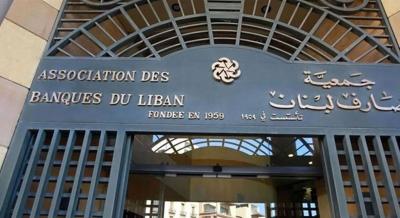Lebanese banking sources confirmed yesterday that a delegation from the U.S. Treasury, which visited Beirut, "ensured that the Lebanese financial sector complies with international laws in combatting money laundering and corruption," despite urging the key players in this sector to adopt stricter measures. It is anticipated that the judicial summonses for several heads and executive directors of Lebanese banks will escalate into a direct conflict between the public prosecutor in Mount Lebanon, Ghada Aoun, and the lawyer of the Association of Banks, after discussions among targeted banks and their legal offices revealed the need to refute the accusations and demonstrate their lack of any suspicions or evidence subject to accountability.
A senior banking official, involved in the matter and its details, explained to "Asharq Al-Awsat" that the conclusions reported by Judge Aoun, based on a complaint memorandum received from a group of lawyers and depositors, are misguided in their direction, as they rely on the premise that the accused bank administrations conducted trading operations and arbitrage on dollar loans received from the Central Bank of Lebanon in the initial weeks following the popular protests in mid-October 2019.
The allegations are based on the claim that the banks repaid these loans through transfers from their accounts at the central bank, thereby benefiting from the price difference between the cash dollar market rate and the rate for checks and deposits, suggesting suspicions of manipulation and illegal enrichment.
In response, bank officials being questioned stated that the lending operations by the central bank were conducted within the framework of directives issued by it. The case at hand pertains to emergency financing due to waves of public protests and a sharp rush by depositors to withdraw cash dollars, alongside urgent needs to cover commercial credits for import obligations of essential materials and goods.
The responses indicated that banks invest large amounts with the central bank exceeding $70 billion, while the loans and financing they received at that time totaled less than $7 billion, and they were charged a high interest rate of 20% annually. They repaid through the available channels, whether from their assets or investments, under the provisions of the directive related to these operations.
As for the exchange rate differences during the same period, bank heads clarified that they were negligible and could not at all be considered as "illegal" profit margins, which negates the essence of the accusation. Notably, the pricing difference for the dollar began to widen sharply and dangerously following the previous government's decision in March 2020 to suspend payments on international bond debts (Eurobonds) amounting to nearly one billion dollars, which immediately triggered the entire portfolio segments due until 2037, now valued at around $35 billion including accumulated interest.
Additionally, bankers pointed to the issuance of exceptional directives and decisions covering expenditures exceeding a total of about $14 billion over the past two years, most of which were squandered on mechanisms to support the prices of importing essential materials without guarantees of the support reaching, except for less than a third, to its rightful recipients. This led to a complete depletion of the central bank's free reserves of hard currencies.
The banking official confirmed, “The bank administrations and their legal offices are in continuous communication and consultation within the framework of the association. We are firmly convinced of the importance of continuing to comply with all laws and regulations, including the directives issued by the monetary authority. Therefore, we will spare no effort to clarify the facts, and it is our right to utilize all legal means available to protect our institutions and safeguard the rights of investors and depositors alike.”
Simultaneously, the Association of Banks in Lebanon assured the U.S. Treasury delegation, which visited Beirut for several days and concluded its meetings with banking leaders, that the banks, despite the ongoing crisis in the country and its repercussions, are fully compliant with financial laws regarding cross-border transactions, particularly U.S. and international ones.
Banking Association President Salim Safi informed the American delegation that “representatives of the banking sector in Lebanon are still making their efforts, under the current circumstances, to exercise appropriate due diligence and control the flow of funds through the banking system and implement the required compliance standards. He also affirmed the banks' commitment to contribute to combating corruption.”
Safi raised concerns within the sector regarding the risks faced by banks and depositors under the difficult conditions, while the government has thus far failed to implement the reforms demanded by the Lebanese people and the international community.
In turn, the American delegation highlighted the importance of combating corruption and urged banks to intensify scrutiny of financial transfers, emphasizing the need for serious efforts to investigate potential violations that may be committed by politically prominent figures and anyone who can access public funds. Furthermore, the delegation stressed the weakness currently affecting the banking sector related to the low reporting of suspicious transactions to the special investigation committee.
The delegation and the Association of Banks agreed on the need to continue appropriately addressing the concerns arising from financial challenges and the necessity to enhance "know your customer" standards and compliance practices electronically.




